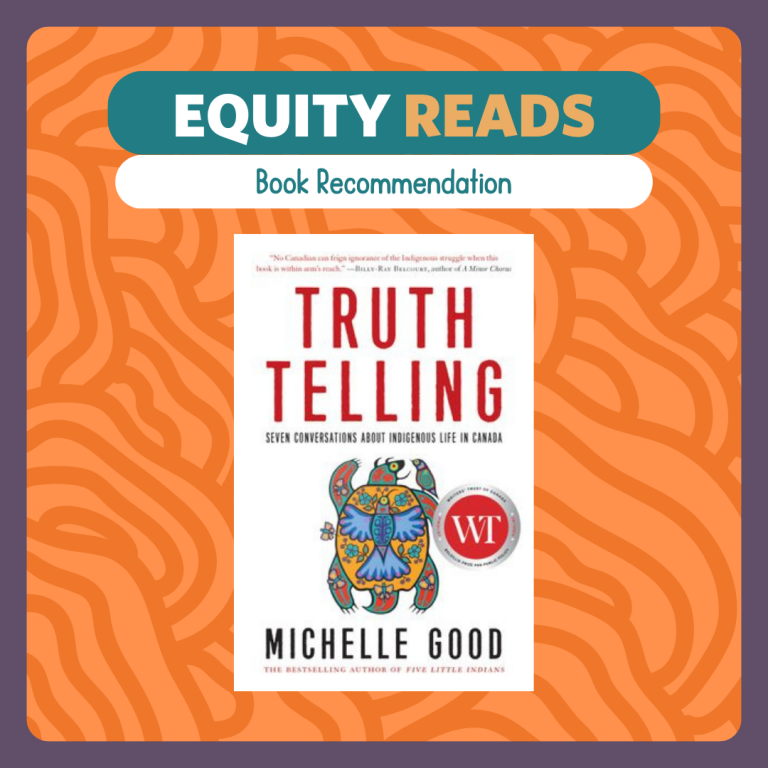This book has been reviewed for Equity Reads by Theo Dhaliwal, UBCO student and Inclusive Programming and Engagement Assistant in the Equity & Inclusion Office.

Truth Telling: Seven Conversations about Indigenous Life in Canada by Michelle Good is a masterclass in direct language. Good’s tone throughout the book is frank and unflinching, maintaining that for genuine reconciliation between Indigenous Nations and non-Indigenous folks in Canada, we must all first reckon with the truth of Canada’s violent history.
We cannot talk our way around the harm that has been done to Indigenous people, their nations, and their cultures. We must tell the truth: Canada has knowingly and intentionally committed violence against Indigenous people through the disruption of Indigenous family units, economic disenfranchisement, betraying treaty terms, and more.
Good is meticulous in referencing and discussing historical events and points of contact between Indigenous Nations and non-Indigenous Canadians, but the book is best enjoyed if you have a baseline knowledge of Indigenous and non-Indigenous relations in Canada. All of us need to acknowledge historical structures and relationships, including those harms that continue today, so that we can meaningfully and responsibly move towards a better future for all communities on these lands.
The overarching theme in Truth Telling is the disconnect between the acts of violence committed against Indigenous people, and how much agency Indigenous people have over their own stories and experiences. One example of this is when Good recounts how the violence that Métis author Maria Campbell experienced at the hands of the RCMP was cut from her memoir Halfbreed. While the missing passages were eventually included, the harm of erasing the experience of an Indigenous woman was irreversible.
Good advocates fiercely for Indigenous rights and holds hope for Canada’s collective future. She implores that none of us allow Indigenous history, or affirmations of Indigenous rights, to exist only as words on a page. Rather, settlers have a duty to breathe life into documents such as the TRC Calls to Action and actively create and repair relations with Indigenous peoples and communities. She acknowledges how tenuous this relationship can be but maintains that there is hope for all of our relations to improve and thrive.
In the last chapter, Good refers to attempts by many Indigenous nations to regain Aboriginal Title on their lands as well as the corresponding sovereignty over them, drawing a particular example to the 1997 Delgamuukw vs British Columbia and the implications this has on current Wet’suwet’en land defenders. This is a real-world opportunity for our governments to uphold the rights of Indigenous people – if we are affirming Indigenous sovereignty over Indigenous lands, why are we continuing to incarcerate and systemically antagonize Indigenous people and allies for asserting that sovereignty.
Overall, Truth Telling is a wake-up call to all Canadians engaging with truth and reconciliation as frameworks in which we pursue equity in Canada. Good reminds us that truth and reconciliation are separate notions and, while they should be held in equal respect, we must address the truth that Canada has buried for so long before we can move forward.
(Reviewer: Theo Dhaliwal, UBCO student and Programming and Engagement Assistant in the Equity & Inclusion Office.)